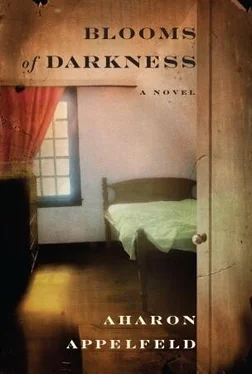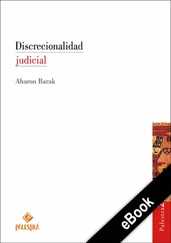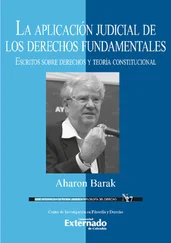“How is it to be in the closet? Aren’t you cold?”
“Not anymore. It’s spring, right?”
“And it’s not boring for you?”
“I think or imagine things.” He doesn’t hide it from her. “And that relieves boredom?”
“Apparently,” Hugo says, using a word that his mathematics teacher used to use.
“And do you know what we do in this place?”
“Not exactly.”
“Didn’t Mariana tell you?”
“No.”
“We’ll talk about that later,” Nasha says, and a thin smile spreads across her face.
Hugo knows that was a test. Did he pass? He has already noticed that Nasha is restrained. The words that come out of her mouth are few. Usually they are questions that reveal nothing about her. Mariana, by contrast, spat out words like boiling water.
Spring is at its fullest. Through the cracks, the smells of mown grass and flowers filter into the closet. Outside a great sun shines. The cows are brought out to pasture, and the pure tranquility heightens Hugo’s longing for Mariana. Only now does he sense how close he was to her. At ten o’clock Nasha stands at the doorway to the closet with a cup of milk in her hand. “How did you sleep?” she asks in an impartial tone of voice.
“I slept well. It wasn’t cold.”
“What did you do?”
“I thought.”
“What did you think about?”
“I thought about Mariana’s fate.”
“Her fate?” Nasha is surprised.
“I don’t have any other word for it.”
“You miss her?”
“Indeed.”
“In that case, why not say, I miss her.”
This is the first personal comment Hugo has heard from her.
Nasha shuts the closet door and begins tidying the room. Hugo can hear her movements, measured and restrained. Mariana hated mopping the floor and changing sheets. She usually neglected cleanliness, and people commented on that more than once.
Hugo soon notices that at night Nasha’s guests don’t make comments to her or get angry at her. Her voice is hardly heard. The visits conclude in a businesslike way, without ceremonies, and without the shouting that he was used to hearing with Mariana.
Since Mariana left, it has been hard for Hugo to write in the notebook. It seems to him that he doesn’t have enough words, that he’s concealing the truth. He wants very much to write everything that is happening in his soul, especially his longings for Mariana, but he’s afraid his mother won’t like that.
Hugo hasn’t been in Mariana’s room since she left. Now the domains are separate: Nasha is in the bedroom, and he is in the closet. Her way of speaking is moderate, and sometimes indifferent. Every once in a while a slight laugh breaks out, but there is no raising of the voice. Nevertheless, Hugo finds something that Mariana and Nasha have in common: at times Nasha also talks about herself in the third person.
“Today Nasha’s going to inspect the room and her body,” she announces. Hugo wants to ask what that means, but he withstands the temptation and doesn’t ask. This time, in any event, she goes out of her way and reveals a bit to him, perhaps more than a bit. Unlike Mariana, she tidies the room thoroughly and washes for a long time.
Toward evening she brings him soup and meatballs and asks, “What did you do?”
“Nothing,” Hugo says, and that’s the truth. Since Mariana left him, he has been assailed by fear. It’s hard for him to sink into thoughts or imaginings. All his thoughts are cut off. And the images in his memory aren’t as clear as they had been. In the morning, Frieda appears before his eyes, trapped in the transport, waving her broad-brimmed hat as though parting from the world with a sarcastic laugh. Hugo wants to go back and examine that image more closely, but fear snatches the picture from before his eyes, and he can see only the transport now, and the people crammed into it. They have no faces, as though they are about to be swallowed in thick fog.
“Why don’t you read?” Nasha stabs him without intending to.
“It’s hard for me to concentrate.” Hugo doesn’t hide the truth from her.
“Have you tried?”
“I haven’t even tried.”
“Jews like to read, isn’t that so?”
“Papa and Mama loved to immerse themselves in reading.”
“My grandfather was a priest. He used to say, ‘Learn from the Jews, they are the people of the book. There isn’t a Jewish house without a library.’ ”
“In our house there’s a big library.” For a moment the pride of past days returns to him.
“And what happened to the books?”
“There’s no one in the house.”
Nasha speaks slowly, listens cautiously, and chooses her words carefully. Her gaze is concentrated, so as not to lose a movement or syllable. Sometimes it seems to Hugo that she is spreading traps around her so that he will be caught or fall.
He tries to learn her gestures, the rhythm of her words, but his efforts achieve nothing. Nasha is a strange creature , he concludes. Who knows what secret she keeps in her soul?
“Isn’t it hard for you to live in the closet?” Nasha surprises him again.
“I’ve gotten used to it.”
“You’re a strong kid.”
“I haven’t done anything to justify that description.”
“You have.”
Every day she leaves him with a loaded word or an incomprehensible sentence. Hugo catches them, and for a long time he turns them over and over, until he becomes weary.
Hugo has already noticed that Nasha doesn’t speak about her parents or about her sisters. Sometimes she mentions her grandfather, and it’s clear that her connection with him was long-standing and close. Every time she mentions his name, she adds, “May he forgive me.”
Hugo listens to Nasha so closely and observes her so intently that Mariana’s face is erased, but not her scent. At night he sees her in the middle of a field of flowers, and she’s drunk and happy, raising her hands to heaven and giving thanks out loud: “Thank you, God, for freeing me from prison. Now Mariana is on her own, just on her own, and no one can tell her what to do.” She immediately kneels down, places her hands together, closes her eyes, crosses herself, and prays.
While she’s praying, Hugo’s mother appears, wearing a long coat that makes her look shorter, her face white and wrung out. For a moment she observes Mariana’s prayers, kneels beside her, and waits for her to finish. When she has finished, his mother asks her, “Mariana, what are you doing here?” Hearing that question, Mariana shrinks down and says, “It wasn’t my fault that they fired me.”
“And where is Hugo?”
“Don’t worry, he’s in good hands, better hands than mine.”
“Are they still searching for Jews?”
“Now the informers are digging in every hole. They are paid for every Jew.”
“The Jews are a desirable commodity, I see. How is Hugo?”
“He’s developed a lot since you left him. He’s a young man in every sense. It’s easy to fall in love with him.”
“Good God.” A shout bursts from his mother’s breast.
“Why are you worried? The school of life is an institution that shouldn’t be underestimated.”
The dream breaks off, and Hugo awakens. Unlike Mariana, Nasha knows how to run her life with strict order. After a night of guests she sleeps until late afternoon. Then she tidies the room, showers, rubs her body with fragrant lotions, and when she appears toward evening she looks calm. She makes no complaints. Sometimes Hugo notices a few wrinkles of dissatisfaction on her face, or a smile mixed with repressed pain, but usually she’s quiet or indifferent. Unlike Mariana, she doesn’t hug or kiss him, doesn’t praise him to the skies or use exaggerated endearments.
Читать дальше












